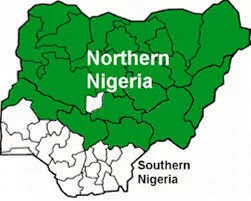
EIGHT NORTHERN STATES OCCUPY LOWEST POSITION IN INTERNALLY GENERATED REVENUE – NBS
Eight states in the northern part of the country occupy the lowest position in internally generated revenue in 2023. The states were Taraba State at N10.8 billion, Yobe N11.1 billion, Kebbi N11.7 billion, Gombe N15.1 billion, Adamawa N17 billion, Sokoto N17.9 billion.
Other States include; Borno N19.4 billion, Benue N19.1 billion.
A newly released report by the National Bureau of Statistics (NBS) has shown that 36 states in the country and the federal capital territory recorded internally generated revenue of N2.4trillion in 2023.
Of this amount, MDAs revenue stood at N478 billion while revenue from tax stood at N1.9trillion.
Details released in the report showed that Lagos State recorded the highest Internally Generated Revenue of N815.8 billion, followed by the Federal Capital Territory, Abuja, at N211billion.
Rivers State made N195 billion, Ogun N146.8 billion, Delta N114 billion, Edo N64.6 billion, Kaduna N62.4 billion, Kwara N59.6 billion, Oyo N52.7 billion, Akwa Ibom N43.1 billion, Ondo N41.5 billion, Kano N37.3 billion, Enugu N33.8 billion, Anambra N33.4 billion, Ekiti N32 billion, Cross Rivers N31.5 billion, Ebonyi N30.8 billion, Bauchi N30.5 billion, Osun N27.9 billion, Jigawa N27.5 billion, Katsina N26.9 billion, Kogi N26.7 billion, Plateau N25.8 billion, Nasarawa N23.4 billion, Abia N23.7 billion, Zamfara N22.1 billion, Niger N21.6 billion, Imo N21 billion, Bayelsa N19.8 billion.
There have been concerns regarding the state of revenue earned by states and the ability of this to help states meet their fiscal responsibilities.
States have been quoted as being largely reliant on federally distributed revenue and reliant on loans to meet their budgetary demands.
 Premium News
Premium News